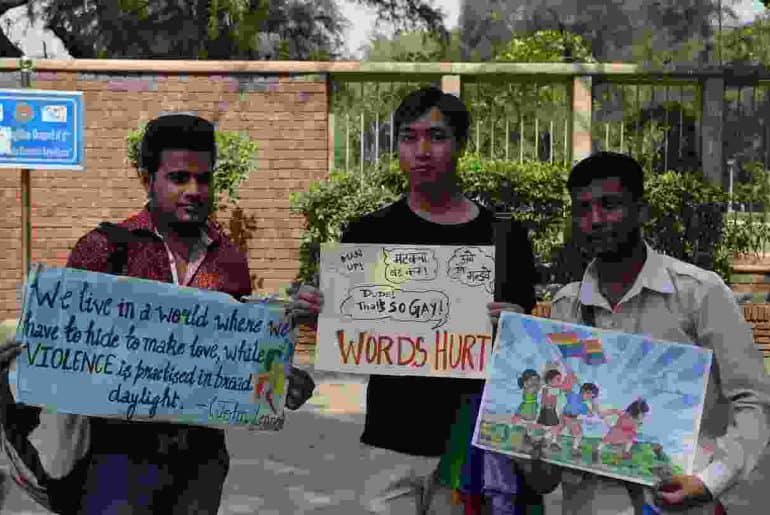The Entrepreneurship Cell of Hindu College organized a two-day E-Summit on April 19th and 20th to enhance the members’ understanding of entrepreneurship and develop their abilities to access educational resources, mentorship, and networking opportunities. Shark Tank Contestants Niharika Jain and Jatan Bawa were invited by the Hindu E-Cell for the “Foundation Forum”.
On April 19, 2023, the Entrepreneurship Cell of Hindu College conducted the first day of its two-day annual E-Summit. The summit organised two flagship events and a Q&A session with Jinesh Shah. The theme was inspired by sustainability, specifically, alternative proteins, which refer to protein-rich ingredients sourced from plants to replace conventional animal-based sources.
“The reason we organised the theme of the E-Summit is because thinking 10 years down into the future, we think food tech is something India can outshine other countries. Why can’t we use mushrooms or mycelium as a potential meat source? Why can’t we grow meat in a lab? The opportunities we allot through innovation and science really motivated us to organise this event specifically focused on this industry.” —Kartik Chauhan, Vice President of E-Cell Hindu College, in conversation with DU Beat
The E-Confluence was the first event conducted by the summit. Participants had to go through a quiz round where they were tested on business acumen and logical thinking. The A-[dulting] Plan competition, in collaboration with Ripen, was a unique competition designed to test all the skills required to successfully “adult,” such as banking, finances, relationships, etc.
At 1 PM, a speaker session with Jinesh Shah, founder of 4 x Alt Protein—India’s first investment fund to leverage and invent new technologies to produce plant-based food with materials that cause less harm to the planet—began.
“Animal agriculture is one of the largest, if not the singular largest contributor, in many of the issues that are a threat to all living beings on this planet. This is something that we think is very important to solve and this is the reason why we’ve come into existence as venture capital in order to be able to fund.” –Jitesh Shah, Founder 4 x Alt Protein and speaker at E-summit
Read also: DU Panel Advisory Proposes Ways to Strengthen Security in Colleges
The second day of the event was marked with the Founder’s Forum which witnessed Niharika Jain, the founder and CSO of Broomees, and Jatan Bawa, the founder of Perfora. The duo had been contestants in the popular show, ‘Shark Tank India’ Season 2 and discussed their experience and journey of starting up and becoming successful entrepreneurs.
The Forum began with Niharika Jain talking about the difficulties faced by young first-time founders in raising funds without the fancy “IIT tag”. On being asked about her typical day as an entrepreneur, she commented on how the industry is all about firefighting every day with arbitrary office hours and new challenges to face at regular intervals.
“You don’t have to be a part of ten societies. Try and find what you like and make time for that. If you have done 2-3 roles nicely, it’s all that matters. Essentially, what is counted is not which college you are from, but what you have done in college.”, she said.
When asked about her experience at Shark Tank, she replied,
“It is dreadful and none of it is scripted. Nothing is decided. It is not a fifteen-minute pitch but a one-and-a-half-hour-long pitch, which gets cut and edited for television. I was scared and didn’t want to get insulted on national television.”.
The second speaker of the day was Jatan Bawa, founder of Perfora – an oral healthcare brand that manufactures electric toothbrushes and toothpaste. On being asked about the right time to startup, he said,
“There is no right time, It’s all a mindset you cannot define by age. Just be passionate about your idea and ensure that your idea is genuinely solving the problems of the customers of the industry, whether B2C, B2B, or a Government consumer.
Talking about the idea behind Perfora, he revealed that it was after over 1000 discussions that the idea of oral care occurred and that’s how the process of building an oral care brand began. He encouraged the students to give time to their ideas and investments and be mentally prepared for all consequences and motivated them about the advantages of working for a company before starting up to avoid future mistakes.
“I know for a fact that Colgate is synonymous with regular toothpaste in India but it is so much fun to change that perception.”
The E-Summit culminated with a vote of thanks and a gift of honour being presented to both guests and turned out to scratch a plethora of possibilities for the young minds to set up their businesses.
Read also: E-Cell, IIT Roorkee Organised ‘E-Summit 2020’
Featured Image Credits: DU Beat
Sri Sidhvi Dindi
[email protected]
Aryan Vats










